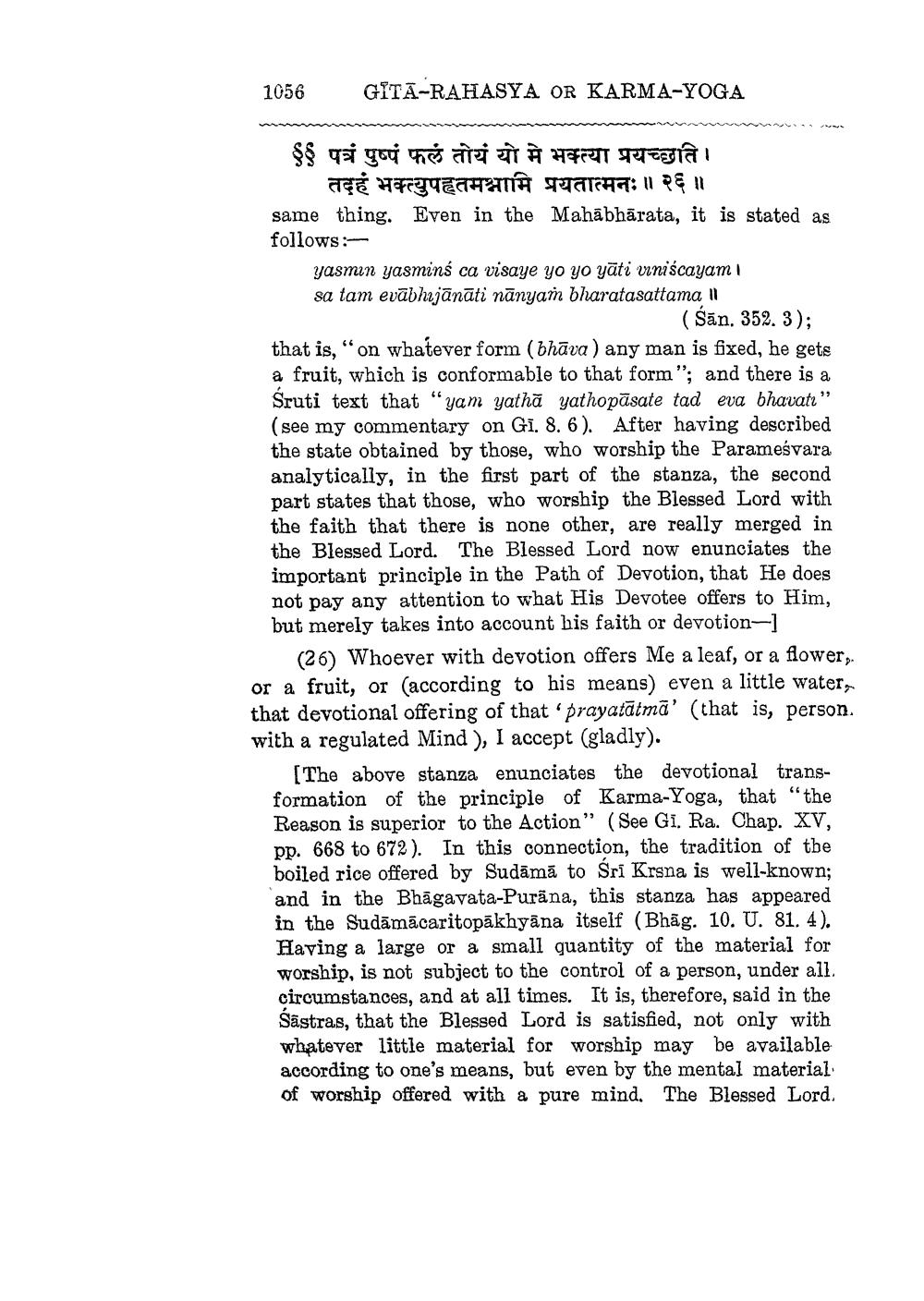________________
1056
GITA-RAHASYA OR KARMA-YOGA
६६ पत्रं पुष्पं फलं तोयं यो मे भक्त्या प्रयच्छति।
तदहं भक्त्युपहृतमश्नामि प्रयतात्मनः॥२६॥ same thing. Even in the Mahābhārata, it is stated as follows:
yasmin yasmins ca visaye yo yo yāti viniscayam i sa tam evābhijānāti nānyam bharatasattama il
(Šān. 352. 3); that is, “on whatever form (bhāva ) any man is fixed, he gets a fruit, which is conformable to that form"; and there is a Sruti text that "yam yatha yathopäsate tad eva bhavati" (see my commentary on Gi. 8. 6). After having described the state obtained by those, who worship the Parameśvara analytically, in the first part of the stanza, the second part states that those, who worship the Blessed Lord with the faith that there is none other, are really merged in the Blessed Lord. The Blessed Lord now enunciates the important principle in the Path of Devotion, that He does not pay any attention to what His Devotee offers to Him, but merely takes into account his faith or devotion
(26) Whoever with devotion offers Me a leaf, or a flower, or a fruit, or (according to his means) even a little water, that devotional offering of that prayatātmā' (that is, person. with a regulated Mind ), I accept (gladly).
[The above stanza enunciates the devotional transformation of the principle of Karma-Yoga, that "the Reason is superior to the Action” (See Gi. Ra. Chap. XV, pp. 668 to 672). In this connection, the tradition of the boiled rice offered by Sudāmā to Sri Krsna is well-known; and in the Bhāgavata-Purāna, this stanza has appeared in the Sudāmācaritopākhyāna itself (Bhāg. 10. U. 81. 4). Having a large or a small quantity of the material for worship, is not subject to the control of a person, under all. circumstances, and at all times. It is, therefore, said in the Šāstras, that the Blessed Lord is satisfied, not only with whatever little material for worship may be available according to one's means, but even by the mental material of worship offered with a pure mind. The Blessed Lord.




